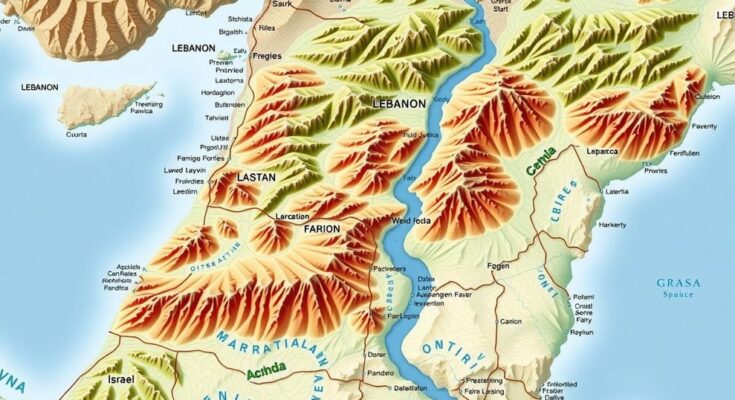Lebanon and Israel have initiated US-sponsored indirect talks focusing on resolving border disputes and prisoner issues under the framework of UN Resolution 1701. Despite claims of normalization, sources maintain that the committees will not pursue direct negotiations, emphasizing continuity in peace efforts. Recent developments include the release of Lebanese prisoners by Israel, as discussions on military presence and territorial disputes continue.
Recent developments have emerged regarding the border dispute between Lebanon and Israel, as both countries proceed with US-sponsored indirect talks. The formation of three committees aims to address existing issues, specifically those under United Nations Resolution 1701, but sources insist that this initiative does not signal a move towards normalization between the two nations.
The committees will specifically focus on resolving outstanding border issues and revisiting disputes that have lingered since the 2006 conflict. In addition to border discussions, matters concerning Israeli occupation of certain territories and the status of Lebanese prisoners will also be on the agenda.
Despite conflicting reports, with Israeli officials suggesting the aim is normalization, sources clarify that the committees will not engage in direct negotiations. They emphasize that this initiative is a continuation of efforts to implement Resolution 1701, rather than a reset of diplomatic relations.
Notably, Israel released five Lebanese prisoners on 11 March as a gesture of goodwill towards Lebanese President Joseph Aoun, which was framed within the context of these negotiations. The agreement includes participation from the US and France, intending to foster discussions aimed at settling the border issues.
US envoy Morgan Ortagus confirmed these talks emphasize diplomatic resolutions to outstanding matters, including disputes along the Blue Line, where both nations claim differing territories. The specifics of these disputed points include several locations that Israel was expected to vacate after the conflict in 2006.
The ongoing Israeli occupation comprises not only the aforementioned areas but also the five points of contention related to the most recent conflict with Hezbollah. Israel’s persistent military actions in southern Lebanon have raised concerns regarding violations of the ceasefire established by UN Resolution 1701. The situation remains complex, with accusations from Israel regarding Hezbollah’s military presence and the latter’s assertion of its rights as per the established agreements.
In summary, the indirect talks between Lebanon and Israel, supported by the United States and France, focus on resolving outstanding border disputes and addressing issues related to prisoners. While there are conflicting narratives about the potential for normalization, the commitment remains to uphold UN Resolution 1701. The release of Lebanese prisoners and continued military tensions in southern Lebanon underscore the complexity of the situation that requires careful diplomatic navigation.
Original Source: thecradle.co




